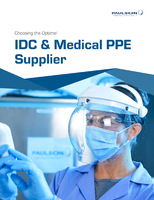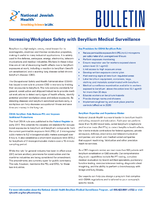HUG Engineering Obtains Lloyds Certification For Burners On Ships To Regenerate Soot Filters
TULSA, Okla. - August 15, 2006. Swiss based HUG Engineering - a world leading manufacturer of emission solutions for diesel engines for power plants, diesel-powered generation sets, ships and locomotives - earned Lloyd's Certification of its NautiClean (Marine DPF in North America) diesel particulate filter burner system used to regenerate its soot filters on ships. Ship certification from Lloyd's is on a case-by-case basis and HUG has received Lloyd's certification on two ships and is in the process of receiving certification on three more.
"Ship certification from Lloyd's provides assurance for our North American and international customer base," says HUG Chief Executive Officer, Thomas Hug. "It gives an extra measure of credibility to all our diesel particulate matter products, and especially to our Marine diesel particulate filter regeneration burning system," Hug adds. HUG Engineering designed products are available in North America from MIRATECH and MIRATECH SCR Corporation.
Marine DPF(TM) Soot Trap - PM 10 & PM 2.5 Compliance Assured
Using fewer components than other active regeneration methods, the Marine DPF system achieves up to 99% soot reduction efficiency with its catalyzed, silicon carbide soot filters that are actively regenerated with a PLC based burner system that oxidizes most of the particulate matter trapped on the surface. The filters are regenerated by monitoring the back pressure on the engine and activating a diesel fuel duct burner to heat the exhaust, burn off soot accumulation and, thus, return back pressure to acceptable limits. Following regeneration, the soot leaves only a small amount of ash on the surface that can be blown or washed off during maintenance periods.
Marine DPF's compact design provides active particulate regeneration for standby generator applications from 80 KW to almost 2,340 KW. Marine DPF can also be utilized on mobile application such as ships
and locomotives. Because of its ability to attenuate sound, Marine DPF may replace the need for an engine silencer or muffler in many cases. The Marine DPF uses the same silicon carbide filters and catalyst that met the Level 3 PM verification process with the California Air Resources Board (CARB) - 85% PM reduction from engines with up to 0.2 g/bhp-hr. - as well as for sub-micron particulate matter which is considered carcinogenic.




